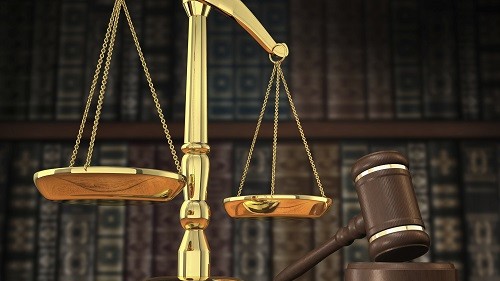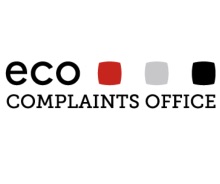Interview eco Complaints Office

Credit: © James Steidl | istockphoto.com
For all the boundless potential and opportunities that the Internet offers, there is also the dark side to the web. Given the borderless nature of the Internet, cross-border, transnational cooperation is vital to keep user data secure, but also to keep users themselves safe. The ongoing fight against illegal content in the Internet requires just such cooperation between the public, content analysts, industry players like Internet service providers and content delivery networks, and law enforcement. While complaints hotlines around the world deal with a whole range of different types of illegal content, probably their most important, and most personally challenging work is dealing with images of child sexual abuse. dotmagazine spoke to Alexandra Koch-Skiba, Head of the eco Complaints Office, on her team’s valuable contribution to the fight against such material.
The audio version of the interview can be listened to here or download the audio to listen it for later.
DOTMAGAZINE: What exactly does the eco Complaints Office do?
ALEXANDRA KOCH-SKIBA: The eco Complaints Office deals with reports about illegal content, particularly content that is endangering (or might be endangering) to minors, and unsolicited emails people receive. Anyone can report potential illegal content to the eco Complaints Office and afterwards we deal with that by assessing the reported content from a legal point of view, and by tracing the hosting location.
DOT: What are the most difficult types of reports to deal with, and what makes them difficult?
KOCH-SKIBA: I would say that there are two kinds of difficult reports: The first one is about child sexual abuse material (CSAM), because it can be hard to cope personally with this kind of content and the images you see. The second one are reports about hate speech online, because of the quite difficult legal criteria that have to be met to be completely illegal, so the legal assessment is quite difficult. We are also dealing with different legal frameworks in the different countries with regards to hate speech, so in the end it is more difficult to take appropriate measures.
DOT: Processing complaints of illegal content is in some situations a very difficult task. How do you keep your staff from becoming too heavily burdened by this?
KOCH-SKIBA: We have a staff-welfare policy in place that is reviewed and updated every two years at least. If there are some important changes we are aware of, of course we update it sooner. We are reducing the time people have to see content, so there is a maximum time-period for every staff member to deal with reports per week; and we take care that people have the support they need before they develop problems. For instance, we offer psychological support, so if people want to talk to someone who is specialised to prevent traumatic problems, they can do that.
DOT: There has been a lot of talk about hate speech in the last couple of years. What measures are you involved in for dealing with hate speech?
KOCH-SKIBA: When we receive a report about hate speech, we process the report like any other report we receive – that means we make the legal assessment, we trace, we ask for appropriate measures – which can mean taking content down – and, of course, we notify police of illegal content. From a more political point of view and the lobbying work eco is doing, we are involved in several roundtables and discussions that are ongoing, to make clear that hate speech is not a usual complaint, that it is not the same as CSAM, for example, because of the different legal backgrounds we have. Of course, it makes a big difference if content is illegal in almost every country – you can have much faster success at the end of the day – which means the taking down of the content. But – with regard to hate speech – if content is legal in some countries, we somehow need to respect this as well. Providers are also able to take that content down when they cover this action in their terms of service, so even in that regard we can have success at the end of the day – but if there is no coverage by law or terms of service, we know it might be problematic for providers to take content down.
DOT: What kinds of law enforcement agencies does the Complaints Office cooperate directly with? Which other ones perhaps more indirectly?
KOCH-SKIBA: We have a very close collaboration with the German Federal Police Office (BKA). In regard to child sexual abuse material, we have a written MoU, and there are several meetings with them to exchange expertise, to discuss problems and to find good solutions for everybody. In regard to hate speech, we have a kind of informal cooperation with the BKA – we can also reach out to them to make them aware of specific problems. In regard to other content which violates German criminal law, we just reach out to the local police and notify them.
DOT: The Internet is a global infrastructure, and content could be hosted anywhere. How do you go about dealing with cross-border issues, either within or outside of the EU?
KOCH-SKIBA: When making our legal assessment, of course, we have German law as a benchmark because we are located in Germany, and our staff is educated in German law. So that is the starting point for us. If we see a violation of law then we reach out to the provider, in Germany, in Europe, but also outside of Europe. We know that there are differences in law, but we want to give the provider the chance to see if there is a violation of their terms of service, so they can take appropriate measures. In the end, there is no big difference in notifying the provider, but of course [there is] in regard to our expectations at the end of the day of what the provider is doing. When it comes to measures, we accept differences in law if we are aware of them. And when it comes to international cooperation, we also have partner hotlines around the world. We can reach out to them, ask for their specific expertise and knowledge, and ask them to go forward with reports – so they reach out to their cooperation partners.
DOT: The Complaints Office is a member of the INHOPE network. Can you tell us a bit about the INHOPE network itself and how it functions?
KOCH-SKIBA: INHOPE was founded almost twenty years ago; it was actually founded in 1999, so a long time ago. Hotlines started to cooperate with each other, particularly in regard to child sexual abuse material, exchange expertise, but also to exchange reports. This means if we see content that is hosted in the UK, for instance, we reach out to our partner organization in the UK, asking them to take over the report and take the measures at a local national level. The cooperation with national partners is key in fighting illegal content – that’s our experience, and that is why we think that it is very important to have a network to cooperate with. There were eight founding members at INHOPE, and it has expanded the membership significantly over the years. Today, we have more than 50 partner organizations around the world – which means also in the U.S., Taiwan, in New Zealand, in South Africa... so you can say that on almost every continent we have partner organizations, and we can reach out to them. The network itself needs a lot of trust because we can only report such content to trust-worthy partners – imagine we would send child sexual abuse material to someone who has a sexual interest in children: that would be the worst-case scenario I can imagine. So, it is important to have trust to each other, to have a kind of same level of knowledge when it comes to legal assessments and tracing – that’s very important. That’s why INHOPE itself organizes several meetings a year to exchange expertise, to know each other in face-to-face meetings, and it supports the hotlines through providing tracing courses or other training events, online and offline.
DOT: The eco Complaints Office is based on the concept of the self-regulation of the Internet. How important in your eyes is the self-regulation of the Internet?
KOCH-SKIBA: Self-regulation of the Internet is very important. It is not only the basis of the eco Complaints Office [but even more] it is the approach of our members. Many years ago, they talked about the best way to fight illegal content, and one of the results was the founding of the eco Complaints Office, and we still stick to the self-regulatory approach. So it’s us who inform the providers, instead of governmental authorities or something like that. Looking at the governmental authorities, you can say that it is much faster to work with hotlines and the self-regulatory approach than going the governmental ways. The way we cooperate with the providers is more informal – there are no procedural ways we have to follow, we can just reach out, notify them, explain why we think something is illegal and ask for measures to be taken. It is a very, very fast approach, and being fast when it comes to illegal content is one of the important things. So, it’s a very easy way to cope with illegal content. On the other hand, without self-regulation, when it comes to specific topics, new trends or something like that – the good cooperation often leads to a fast solution.



